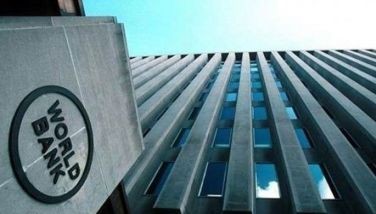Landbank asks SEC to dissolve Uniwide
June 19, 2001 | 12:00am
A creditor bank of the beleaguered Uniwide Group has asked the Securities and Exchange Commission (SEC) to terminate the company’s recovery program and proceed with its dissolution and liquidiation due to its inability to comply with its rehabilitation plan.
The state financing institution Land Bank of the Philippines (LBP) has petitioned the SEC to apply Sec. 4-26 of the Rules of Procedure on Corporate Recovery in Uniwide’s case due to "the failure to achieve the desired targets or goals as set forth therein."
LBP has argued that since the SEC approved Uniwide’s rehabilitation plan on April 11, 2000 and its succeeding amendments, the company has not been able to implement the recovery program as its supposed "white knight" – French retail giant Casino Guichard-Perrachon – backed out from the deal last January.
Based on the rehab plan, Uniwide will stick to its core business of retailing (and leave out its disastrous investments in real estate) to make the balance sheet of its flagship unit Uniwide Warehouse Club Inc. free of bank debts. This will be done through a combination of dacion en pago arrangements of non-operating assets and cash payment.
Casino was supposed to infuse fresh capital amounting to P3.57 billion for the needed cash in exchange for management control of the company but the French firm decided it was not yet ready to come to Uniwide’s rescue and gave up its plan to invest in the company.
"Since Casino pulled out of talks investing in Uniwide, no other investor has expressed interest to infuse capital in the debt-ridden company. In the absence of such investor, the goal set out in the Rehabilitation Plan may no longer be achieved," LBP said.
Based on the memorandum of agreement executed between Uniwide and Casino, along with the SEC-appointed rehabilitation receiver, the rehabilitation plan sets the timetable for its complete implementation on June 30, 2000.
However, the timetable was extended several times until Casino informed the group it was not pushing through with the MOU last Jan. 3, 2001.
Earlier, the SEC approved the implementation of a dacion en pago outstanding between Uniwide and three of its biggest creditors banks – UCPB, Metro-bank and International Exchange Bank.
The banks said the dacion en pago will reduce Uniwide’s P9.624 billion outstanding obligations by P1.59 billion and will make the ongoing business more attractive to potential investors.
The SEC granted the request of Uniwide’s interim receivers to execute the dacion en pago mode of payment under the company’s amended rehabilitation plan, noting that the properties involved are not used in Uniwide’s retail business and hence will not jeopardize its operations.
The state financing institution Land Bank of the Philippines (LBP) has petitioned the SEC to apply Sec. 4-26 of the Rules of Procedure on Corporate Recovery in Uniwide’s case due to "the failure to achieve the desired targets or goals as set forth therein."
LBP has argued that since the SEC approved Uniwide’s rehabilitation plan on April 11, 2000 and its succeeding amendments, the company has not been able to implement the recovery program as its supposed "white knight" – French retail giant Casino Guichard-Perrachon – backed out from the deal last January.
Based on the rehab plan, Uniwide will stick to its core business of retailing (and leave out its disastrous investments in real estate) to make the balance sheet of its flagship unit Uniwide Warehouse Club Inc. free of bank debts. This will be done through a combination of dacion en pago arrangements of non-operating assets and cash payment.
Casino was supposed to infuse fresh capital amounting to P3.57 billion for the needed cash in exchange for management control of the company but the French firm decided it was not yet ready to come to Uniwide’s rescue and gave up its plan to invest in the company.
"Since Casino pulled out of talks investing in Uniwide, no other investor has expressed interest to infuse capital in the debt-ridden company. In the absence of such investor, the goal set out in the Rehabilitation Plan may no longer be achieved," LBP said.
Based on the memorandum of agreement executed between Uniwide and Casino, along with the SEC-appointed rehabilitation receiver, the rehabilitation plan sets the timetable for its complete implementation on June 30, 2000.
However, the timetable was extended several times until Casino informed the group it was not pushing through with the MOU last Jan. 3, 2001.
Earlier, the SEC approved the implementation of a dacion en pago outstanding between Uniwide and three of its biggest creditors banks – UCPB, Metro-bank and International Exchange Bank.
The banks said the dacion en pago will reduce Uniwide’s P9.624 billion outstanding obligations by P1.59 billion and will make the ongoing business more attractive to potential investors.
The SEC granted the request of Uniwide’s interim receivers to execute the dacion en pago mode of payment under the company’s amended rehabilitation plan, noting that the properties involved are not used in Uniwide’s retail business and hence will not jeopardize its operations.
BrandSpace Articles
<
>
- Latest
- Trending
Trending
Latest























